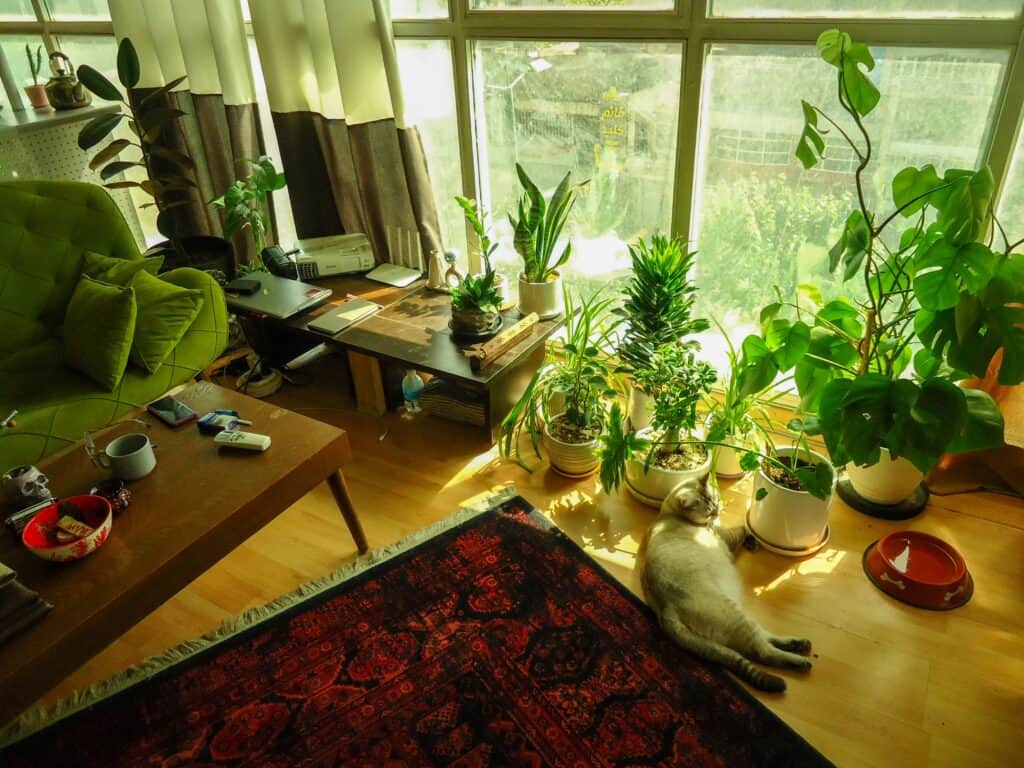Check how old is your pet in human years using our Pet Age Calculator.
Key Takeaways
- Pets may prefer friends over their owners due to factors like familiarity, new experiences, and exciting interactions.
- Scent plays a crucial role in pet preferences; unfamiliar scents can be appealing and evoke positive feelings.
- Early social experiences significantly shape a pet’s behavior and receptiveness to new people.
- Interaction styles matter; pets are drawn to engaging and enthusiastic individuals, whether friends or owners.
- Quality time spent with pets strengthens emotional bonds and can encourage them to choose their owners over friends.
- Different energy levels between owners and friends influence pet attraction; matching a pet’s mood enhances connection.
Have you ever noticed your pets gravitating towards your friends instead of you? It’s a puzzling situation that can leave you feeling a bit left out.
As a devoted pet owner, it’s tough to see your furry companions showering affection on others while you’re the one who feeds and cares for them.
Understanding why pets might prefer the company of your friends can shed light on their behavior. Factors like energy levels, social interactions, and even scent can play a significant role in this dynamic.
In this article, I’ll explore the intriguing reasons behind your pets’ apparent favoritism and offer insights on how to strengthen your bond with them.
Table Of Contents
- 1 Why Do My Pets Like My Friends More Than Me: Understanding Pet Behavior
- 2 Socialization and Your Pets
- 3 Human-Pet Bonding
- 4 Friends and Pets: A Comparison
- 5 Conclusion
- 6 Frequently Asked Questions
- 6.1 Why do pets show more affection to friends than their owners?
- 6.2 What factors influence a pet’s preference for friends?
- 6.3 How does socialization affect a pet’s behavior?
- 6.4 Can the owner’s interaction style impact the pet’s feelings?
- 6.5 How can owners enhance their bond with pets?
- 6.6 Why do pets prefer different energy levels in interactions?
- 6.7 Is it beneficial to include friends in pet interactions?
- 6.8 How can understanding a pet’s personality improve owner interactions?
Why Do My Pets Like My Friends More Than Me: Understanding Pet Behavior
Understanding why pets might favor friends over their owners involves examining various behavioral factors. Pets often react uniquely to different individuals, influenced by familiarity and scent.
The Role of Familiarity
Familiarity plays a significant role in pet behavior. Pets often form strong bonds with individuals who provide consistent care, warmth, and interaction.
Owners who engage regularly with their pets can foster a deeper connection. Friends may introduce novelty through different experiences or interactions, which can stimulate a pet’s interest.
Pets might perceive these friends as exciting due to new voices, movements, or activities they bring. Regularly including friends in pet interactions can enhance socialization and reinforce the bond between the pet and the owner.
The Impact of Scent
Scent significantly influences pets’ preferences, as they rely heavily on their sense of smell. Each person carries a unique scent profile, shaped by their environment, activities, and even diet.
Friends may smell different due to fragrances, pet dander, or outdoor smells picked up during their travels. Pets might be attracted to unfamiliar scents, associating them with positive experiences.
Regularly rotating activities or environments with friends can introduce diverse scents that pique a pet’s curiosity, ultimately impacting their affection levels.
Socialization and Your Pets
Socialization significantly impacts how pets interact with people. Early experiences and interaction styles shape their behavior and preferences in social situations.
Early Experiences
Early experiences play a crucial role in pets’ social development. Dogs that encounter various people during their formative weeks form a broader understanding of different social cues.
Positive interactions with familiar faces foster strong attachments, while negative experiences with strangers can lead to cautious behavior.
A pet that has had enriching encounters will typically respond better to new people, including friends, than one with limited exposure.
Understanding a pet’s early social history provides insight into why they might prefer certain individuals over others.
Interaction Styles
Interaction styles significantly influence pets’ preferences. My enthusiasm and warmth during playtime or training enhance my bond with my pets.
Dogs respond positively to owners who engage them, showing affection and encouragement. If my friends exhibit more warmth or spirited interactions, pets may gravitate toward them.
Additionally, pets recognize social cues—confident and calm friends provide reassurance. Engaging more frequently with my pets through positive reinforcement and affection can strengthen our relationship and encourage my pets to choose interaction with me over others.
Human-Pet Bonding
Understanding human-pet bonding reveals why pets may connect more with friends than their owners. The dynamics of affection and interaction shape these relationships, highlighting the significance of quality time and personality compatibility.
The Importance of Quality Time
Quality time with pets fosters stronger emotional connections. Pets thrive on positive experiences, so engaging in playful activities, giving treats, or offering relaxed attention enhances bonds.
My friends might provide consistent play and excitement, making them more appealing if I don’t match that level of engagement.
Spending more time playing, training, or simply relaxing together can create enjoyable associations, encouraging pets to seek companionship with me.
Understanding Pet Personalities
Pet personalities greatly affect how they bond with humans. Traits like extroversion and enthusiasm in owners correlate with better interactions.
If my friends are more outgoing or playful, my pets might be more drawn to them. Pets respond to the personality traits and moods of their humans, so a warm, engaging demeanor from me can help bridge this gap.
Recognizing my pet’s unique personality traits enables me to tailor my interactions, strengthening our connection and promoting mutual affection.
Friends and Pets: A Comparison
Pets often show distinct preferences for friends over their owners due to various factors in social dynamics and energy levels. Understanding these aspects helps clarify why pets may favor friend interactions.
Social Dynamics
Social dynamics play a crucial role in how pets perceive relationships. Pets respond positively to new people who introduce different types of attention and engagement.
Friends may provide fresh energy, which can stimulate pets’ interest significantly. The novelty of a friend’s presence often encourages pets to explore their environment and interact playfully, making the experience feel rewarding.
In contrast, the familiarity of an owner might not elicit the same enthusiasm, as the routine can become predictable. This dynamic reveals that pets thrive on varied social interactions, which can enhance companionship.
Different Energy Levels
Different energy levels between friends and owners impact pets’ attraction. Pets are highly sensitive to the moods and behaviors of those around them.
Friends who exhibit playful, calm, or active energy can captivate a pet’s attention more effectively than owners whose energy levels may be less engaging.
When friends mirror a pet’s current mood, whether it be energetic or relaxed, they create a connection that feels more synchronistic.
Consequently, if a friend’s playful nature resonates with a pet’s vibe, the pet may gravitate toward them, perceiving the interaction as more enjoyable and stimulating.
Understanding this dynamic allows owners to adjust their interactions, potentially enhancing the energy they bring into their pets’ lives.
Conclusion
It’s completely normal to feel a bit left out when your pets seem to prefer your friends. Understanding the reasons behind this behavior can help me strengthen my bond with my furry companions.
By being aware of factors like energy levels and the novelty that friends bring, I can adjust my interactions to be more engaging and fun.
Involving friends in playtime or socializing can also enhance my pet’s experience, making it a win-win for everyone. Ultimately, the key lies in recognizing my pet’s unique personality and needs.
With a little effort and creativity, I can foster a deeper connection and ensure my pets feel just as affectionate towards me as they do towards my friends.
Frequently Asked Questions
Why do pets show more affection to friends than their owners?
Pets may show more affection to friends due to novelty and varied interactions. Friends can offer new experiences, energy levels, and scents that captivate pets, making them appear more appealing compared to familiar owners.
What factors influence a pet’s preference for friends?
Several factors, such as energy levels, social interactions, and scent, affect a pet’s preference. Pets often respond positively to friends who engage them playfully, mirroring their moods and providing exciting interactions.
Socialization plays a crucial role in a pet’s development and behavior. Positive early experiences lead to stronger attachments, while negative interactions can create cautious behavior, affecting how pets bond with humans later.
Can the owner’s interaction style impact the pet’s feelings?
Yes, an owner’s interaction style can significantly influence a pet’s feelings. Engaging with enthusiasm and warmth fosters strong bonds, while a lack of engagement might make pets seek affection from more playful friends.
How can owners enhance their bond with pets?
Owners can enhance their bond by spending quality time with pets, engaging in playful activities, and using positive reinforcement. Matching the energy and interaction styles of friends can make interactions feel more rewarding for pets.
Why do pets prefer different energy levels in interactions?
Pets are sensitive to the moods of those around them. They may prefer friends with higher energy that mirror their current mood, making the interaction feel more enjoyable and rewarding compared to their owners.
Is it beneficial to include friends in pet interactions?
Yes, including friends in pet interactions can improve socialization and reinforce connections. It allows for varied engagement that can stimulate pets while helping them acclimate to diverse social settings.
How can understanding a pet’s personality improve owner interactions?
Recognizing a pet’s unique traits, such as extroversion, helps owners tailor their interactions. Adjusting engagement styles to suit their pet’s personality can strengthen the bond and deepen mutual affection.





